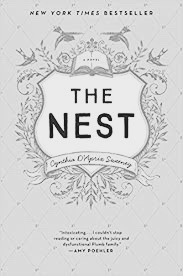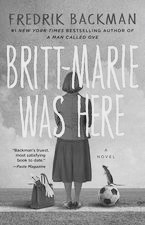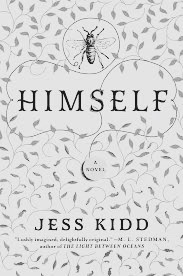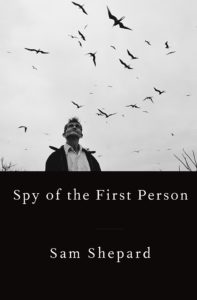As this goes to print I sit in front of a warm fire and enjoy the prospect of snow this winter. There is nothing better than a vacation or snow day to curl up and enjoy a cup of cocoa with a pile of books and I hope you have a stash ready just in case the opportunity arises soon. Here are a few possibilities you might want to add to your collection.
 Cynthia D’Aprix Sweeney introduces readers to the Plumb family in her debut novel The Nest. Four siblings are the centerpiece of the story which revolves around the family nest egg, held in trust until the youngest member Melody turns forty. Their mother, however, has the power to use that money in an emergency and an emergency does arrive in the form of the eldest sibling, Leo, being a complete irresponsible idiot and getting behind the wheel while he is drunk. Quickly Melody, Bea and Jack see all of the money they were expecting to be theirs disappearing to pay for Leo’s mistake. It infuriates them and changes their lives. Suddenly they are forced to reimagine their futures and they aren’t really happy with that. Simmering resentments surface and the family’s dysfunction becomes apparent. I love debut novels and this a good one delving into the meaning of family, loyalty and love.
Cynthia D’Aprix Sweeney introduces readers to the Plumb family in her debut novel The Nest. Four siblings are the centerpiece of the story which revolves around the family nest egg, held in trust until the youngest member Melody turns forty. Their mother, however, has the power to use that money in an emergency and an emergency does arrive in the form of the eldest sibling, Leo, being a complete irresponsible idiot and getting behind the wheel while he is drunk. Quickly Melody, Bea and Jack see all of the money they were expecting to be theirs disappearing to pay for Leo’s mistake. It infuriates them and changes their lives. Suddenly they are forced to reimagine their futures and they aren’t really happy with that. Simmering resentments surface and the family’s dysfunction becomes apparent. I love debut novels and this a good one delving into the meaning of family, loyalty and love.
 If you read the novel I recommended in another Bookworm Review called A Man Called Ove and enjoyed it, or if you like Scandinavian writing, then you must read Britt-Marie Was Here. Author Fredrik Backman has a distinctive writing style of which I have become enamored. His main character, Britt-Marie, is prickly and set in her ways when she learns her husband has been cheating on her. She is stunned. She had her life ordered and completely organized, now it has come completely undone. But Britt-Marie will rise above it all. With her favorite cleaning products in tow, she heads to a new life as the temporary manager of a rec center in a dead-end town called Borg. Backman once again creates delightful characters and I laughed out loud at Britt-Marie’s thoughts on everything from the ordering of the cutlery drawers to how to entertain a rat for dinner.
If you read the novel I recommended in another Bookworm Review called A Man Called Ove and enjoyed it, or if you like Scandinavian writing, then you must read Britt-Marie Was Here. Author Fredrik Backman has a distinctive writing style of which I have become enamored. His main character, Britt-Marie, is prickly and set in her ways when she learns her husband has been cheating on her. She is stunned. She had her life ordered and completely organized, now it has come completely undone. But Britt-Marie will rise above it all. With her favorite cleaning products in tow, she heads to a new life as the temporary manager of a rec center in a dead-end town called Borg. Backman once again creates delightful characters and I laughed out loud at Britt-Marie’s thoughts on everything from the ordering of the cutlery drawers to how to entertain a rat for dinner.
 The last book on my list this month is my favorite book in a long time. Himself, by Jess Kidd is a beautifully written Irish tale that is magical and glowing. This is one of the few novels I have read where I can actually hear the Irish lilt. The language is rich and delectable! Mahony returns to his mother’s hometown, Mulderrig, to investigate her disappearance which occurred years ago. The town is filled with secrets and ghosts are quite literally stirred up as Mahony probes into the past. He seems to have a touch of magic about him and even nature appears to be affected by his presence. This novel is a combination fairy tale and crime fiction and is remarkable in every way. It is like many Irish tales which seems to grow with each telling.
The last book on my list this month is my favorite book in a long time. Himself, by Jess Kidd is a beautifully written Irish tale that is magical and glowing. This is one of the few novels I have read where I can actually hear the Irish lilt. The language is rich and delectable! Mahony returns to his mother’s hometown, Mulderrig, to investigate her disappearance which occurred years ago. The town is filled with secrets and ghosts are quite literally stirred up as Mahony probes into the past. He seems to have a touch of magic about him and even nature appears to be affected by his presence. This novel is a combination fairy tale and crime fiction and is remarkable in every way. It is like many Irish tales which seems to grow with each telling.
So, grab your beverage of choice and stoke up the fire and enjoy a brief spell immersed in a book this new year!
The final work from the Pulitzer Prize–winning writer, actor, and musician, drawn from his transformative last days.
 In searing, beautiful prose, Sam Shepard’s extraordinary narrative leaps off the page with its immediacy and power. It tells in a brilliant braid of voices the story of an unnamed narrator who traces, before our rapt eyes, his memories of work, adventure, and travel as he undergoes medical tests and treatments for a condition that is rendering him more and more dependent on the loved ones who are caring for him. The narrator’s memories and preoccupations often echo those of our current moment—for here are stories of immigration and community, inclusion and exclusion, suspicion and trust. But at the book’s core, and his, is family—his relationships with those he loved, and with the natural world around him. Vivid, haunting, and deeply moving, Spy of the First Person takes us from the sculpted gardens of a renowned clinic in Arizona to the blue waters surrounding Alcatraz, from a New Mexico border town to a condemned building on New York City’s Avenue C. It is an unflinching expression of the vulnerabilities that make us human—and an unbound celebration of family and life.
In searing, beautiful prose, Sam Shepard’s extraordinary narrative leaps off the page with its immediacy and power. It tells in a brilliant braid of voices the story of an unnamed narrator who traces, before our rapt eyes, his memories of work, adventure, and travel as he undergoes medical tests and treatments for a condition that is rendering him more and more dependent on the loved ones who are caring for him. The narrator’s memories and preoccupations often echo those of our current moment—for here are stories of immigration and community, inclusion and exclusion, suspicion and trust. But at the book’s core, and his, is family—his relationships with those he loved, and with the natural world around him. Vivid, haunting, and deeply moving, Spy of the First Person takes us from the sculpted gardens of a renowned clinic in Arizona to the blue waters surrounding Alcatraz, from a New Mexico border town to a condemned building on New York City’s Avenue C. It is an unflinching expression of the vulnerabilities that make us human—and an unbound celebration of family and life.
Spy of the First Person (Knopf), an autobiographical work of fiction, comes with a poignant back story. Sam Shepard, whose illness had not been made public, began working on the book in 2016, writing by hand. When that became impossible, he used a tape recorder, with family members transcribing. Musician Patti Smith, a friend, helped Shepard with edits, and he gave the final manuscript to his daughter just days before he died.
There are references in Spy of the First Person to his actual sisters and two sons and daughter, so reality fleetingly intrudes upon this fragmentary, disjointed narrative, in which Samuel Beckett’s influence on Shepard (Buried Child, Fool for Love) has perhaps never been more apparent. It’s Waiting for Godot in the desert.
Who is the “Spy of the First Person”? It could be Shepard spying on himself, watching himself deteriorate. It could be, and perhaps is, God. Waiting.
As this book with the brilliant title begins, someone is watching a man on a screened-in porch in a rocking chair, which, we learn later, is a wheelchair. The point of view shifts between the watcher and the watched. (“Sometimes it feels like we’re the same person,” Shepard writes.)
It’s unclear at times who is sharing this flood of memories, of grandparents, of a terrible day when a racehorse was shot by a sniper, of a woman being beaten, of a man escaping Alcatraz (real or a movie?). The reader must follow the flow; but, like trying to decipher someone else’s dreams, it’s not always easy.
The book startles with quick, elliptical references to the unnamed man and his illness, discovered after spinal taps and MRIs and blood tests and X-rays. “Nothing seems to be working now. Hands. Legs. Nothing. I just lie here.”
And later: “You notice the progressive nature of things. Things run down. You notice how different. You don’t want to believe it.” Eventually, having to ask for help to scratch an itch: “Is something crawling through my hair? Is there an ant, for instance? Is there a worm? Is there a fly? An insect of some kind, winged? Mosquito? A leggy insect. An insect with many tentacles that is searching around through my hair for something imagined?”
It’s painful to read, and yet remarkable to think Shepard was compelled to keep writing, and without self-pity.
A feeling of vague paranoia can lurk in these sparse pages. “Someone wants to know something. Someone wants to know something about me that I don’t even know myself. I can feel him getting closer and closer.”
There’s a subtle curiosity at work, too, the curiosity of a writer to the very end. Unsettling, yet brave.


